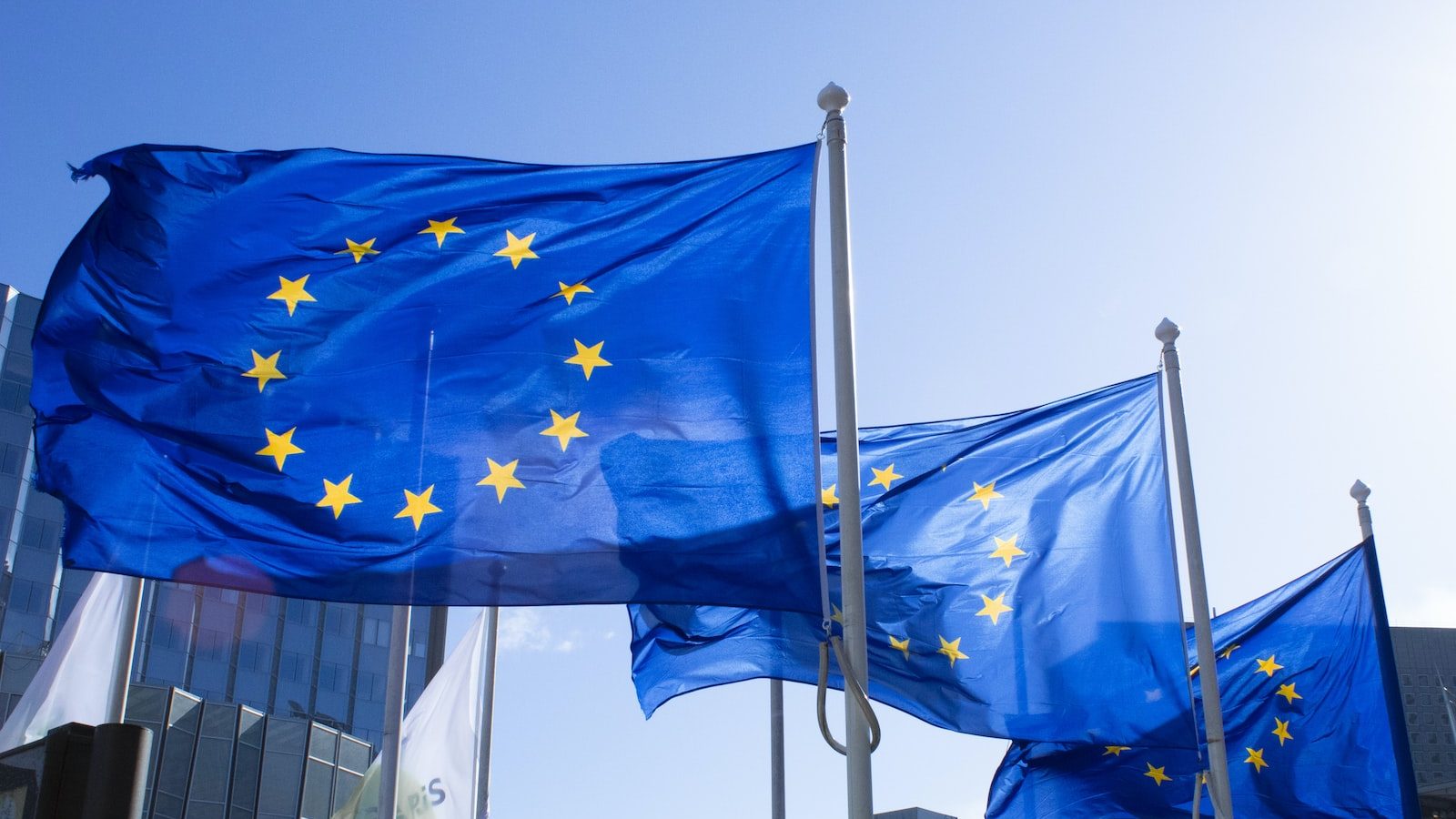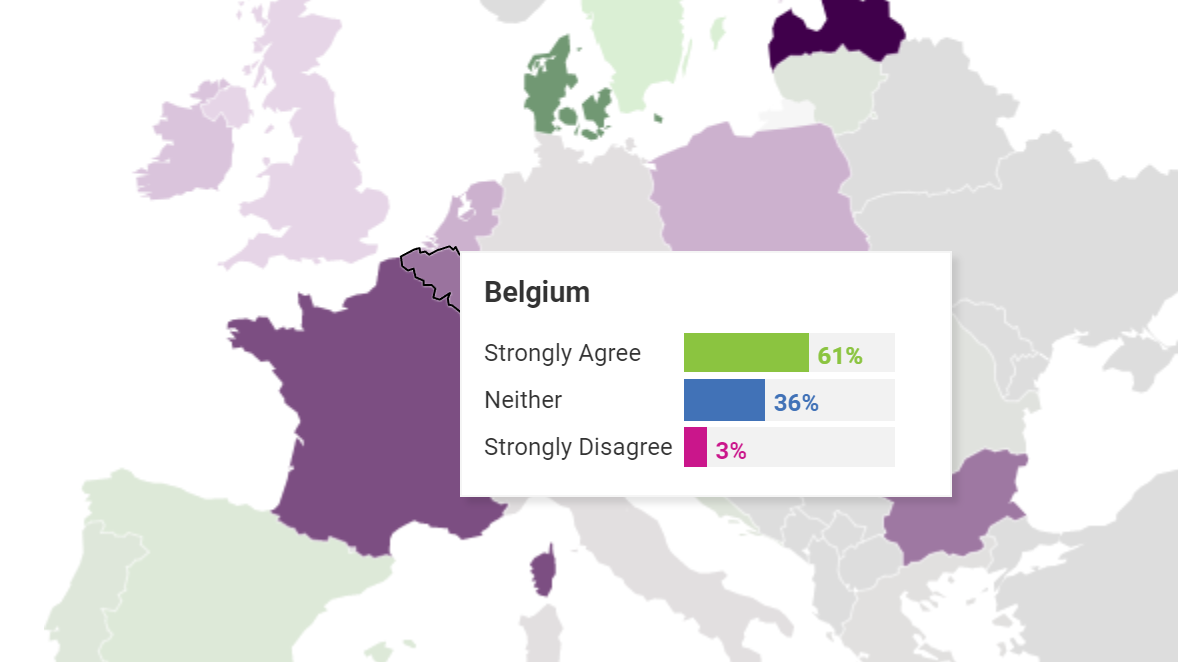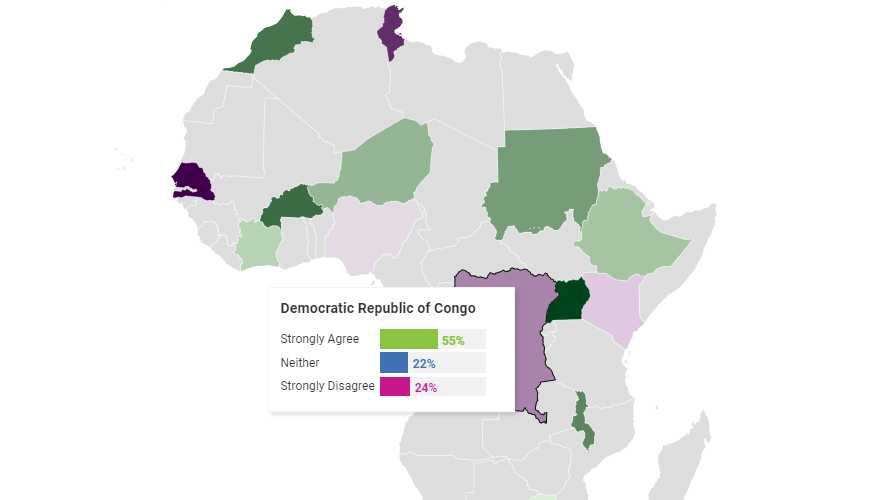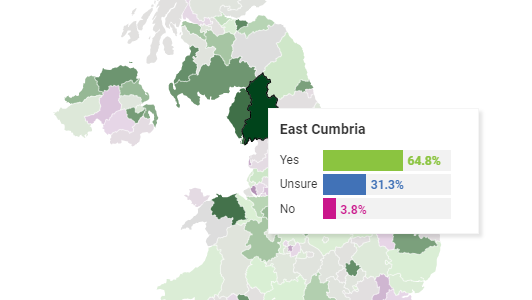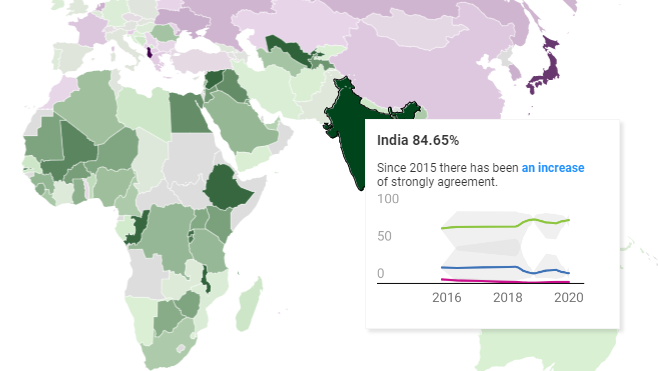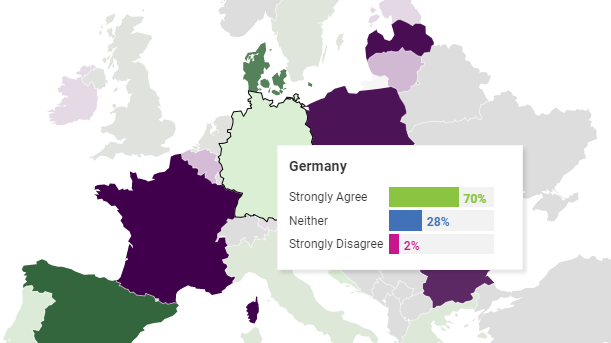Vaccination in Brazil
There is a strong culture of vaccination in Brazil. Brazilians have trust in the primary health care system and national immunisation programs. There have been successful vaccination drives in recent memory including against diseases like polio which was eradicated in 1989.
The Plano Nacional de Vacinação (National Vaccination Plan) provides every child with a vaccination card to follow until adulthood with the goal of reaching 100% immunisation against common diseases. These cards are a powerful tool for HCPs in delivering immunisation as well as to aid understanding of vaccination amongst the population.
50 years of vaccination programs built vaccine confidence and made Brazilians somewhat resilient against vaccine misinformation. This has been tested in recent times as COVID-19 killed over 600,000 people in the country, trust in technical agencies such as ANVISA and the primary health care system SUS remained strong.

Vaccine confidence
Agree (%)
Demographic
Focus areas
Zika
Zika became an international emergency in 2015 in Brazil and other countries in Latin America, leaving a trail of thousands of children with microcephaly and other manifestations of congenital Zika syndrome (CZS). These children experience a range of health conditions, often resulting in severe physical, sensory and cognitive impairment (Miranda-Filho et al., 2016). They have high healthcare needs from a range of providers, putting considerable time and emotional pressure on caregivers (Moreira et al., 2018).
With support from the Wellcome Trust, UK Foreign, Commonwealth and Development Office and the Oswaldo Fiocruz Foundation, The VCP conducted a study to investigate how hope and trust played out for two groups at the forefront of the Zika epidemic: caregivers of children with congenital Zika syndrome and healthcare workers.
The study was conducted in two sites in Brazil by researchers based in both Brazil and the UK: Recife, where Zika virus (ZIKV) is highly endemic, and Rio de Janeiro, where it had been less common until recently.
The research project examined hope and trust in clinical settings, as well as trust in public institutions, in the health system and in the government of Brazil through ethnographic observation in social grounds associated with care and treatment of compromised children, and 76 semi-structured in depth interviews with caregivers and healthcare workers supporting the long-term care of children with CZS.
Key findings
- Hope and trust were found to be central to managing uncertainty and risk during and after the Zika epidemic. The ability to trust and to co-create hope permitted relationships to develop between caregivers and healthcare workers that softened social impacts and allowed trusted information sharing and acceptance of interventions. Hope and trust were also important to establishing novel interpersonal dynamics, including the development of caregiver support groups.
- In contrast, generalized mistrust in government and public institutions allowed rumours and alternative explanations about Zika to spread, fuelling activism in mothers’ associations leading to positive and negative interactions with healthcare services.
- The intense global attention given to the Zika epidemic raised local suspicions about underlying motivations of international health actors and consequently led to mistrust. Rather than abstract concepts, trust-based and hopeful relationships may directly impact on global responses to future epidemics. If positive relationships are not rebuilt, the distrust in foreign health actors and global health agenda could persist and impact on future outbreak response in the region.
HPV
Human Papillomavirus (HPV) is the fourth biggest cause of mortality amongst women in Brazil according to the Pan American Health Organisation (PAHO) but COVID-19 has stalled HPV vaccine programs and changed attitudes towards vaccines.
At launch, vaccination efforts delivered a first dose to 90% of eligible people across the country but the delivery of follow-up doses and vaccination of other cohorts declined with time. Today, it is estimated that about 58% of Brazilian girls and adolescents between 9 and 15 years have received two doses of vaccine. Among 11-15 years old boys and adolescents, only about 38% have received two doses of vaccine.
In partnership with the Vaccine Confidence Fund, ORB International and Real Chemistry, the VCP set out to identify drivers of vaccine confidence that can be activated via a social media campaign to support the successful continuation of HPV programmes across Latin America.
Using robust online surveys, emotional insight focus-groups, and co-creation workshops, this research explored the dynamic between mothers and daughters in shaping rational and emotional drivers of vaccine confidence relating to the HPV vaccines, digging deeply into the role that social media can play.
This multi-phased research approach applied frameworks including behavioural science, anthropology, sociology, and semiotics to identify actionable insights and provide clear recommendations for future social media campaigns that can drive vaccine confidence and uptake.
Key findings
Vaccine confidence is strong among Brazilian women.
Our respondents were confident that vaccines work with 8 in 10 Brazilian women (81%) strongly agreeing that vaccines, in general, are effective.
The biggest challenge we encountered in research is not hesitancy or rejection. It is a lack of awareness around basic information about HPV vaccination.
Outright rejection of the HPV vaccine is rare, people simply don’t understand when the vaccine is available, why it’s important or when they can take it. There are specific gaps in knowledge around why the vaccine is given so early, who it should be given to, or how many doses were needed.
To win we need to get the fundamentals of communication right, before we consider innovation we need to create a framework for communications.
We need to grow awareness around the HPV vaccination to a wide audience. We need to provide clear, concise and credible information to help our audience understand why vaccination is vital. We need to reinforce messaging with timely and relevant reminders of when, where, and how to access vaccination. We have to encourage Health Care Professionals (HCPs) to become active ambassadors.
